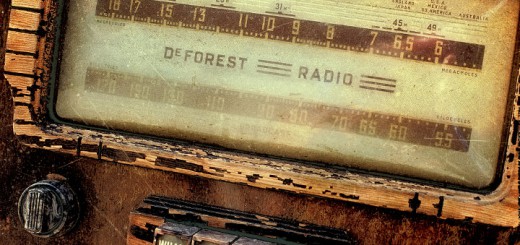Lies, Damn Lies And Podcast Downloads
A long time ago, way before Col. Sanders was born, somebody invented statistics. In hindsight, this was a bad idea. Before statistics, people used common sense and their powers of persuasion to support their suppositions.
OGG: Me think sun not rise tomorrow.
GLOG: Me think sun will rise tomorrow.
A fight ensues. Two women in the tribe, so entranced by Ogg and Glog’s manliness, marry them. They raise families, throw great parties and live happily ever after.
Fast Forward a Million Years
After statistics, though, common sense was never part of the equation.
MICHELSON: Join me at sunrise tomorrow. I’m planning on measuring the speed of light.
MORLEY: Hmmm…the sun has risen every day for the last week. So…according to LaPlace’s rule of succession, there’s a one in nine chance it won’t rise tomorrow.*
MICHELSON: You’re just saying that so you can sleep in.
A fight ensues. Michelson knocks Morley unconscious with his briar pipe, then passes out in shock when he sees blood on his tweed sport jacket. Neither man regains consciousness in time to see the sun rise.
Then Forward Another 128 Years
By the 21st century not much had changed.
PODCASTER 1: My podcast has a million downloads. That’s more listeners than Col. Sanders has herbs and spices.
PODCASTER 2: Oh yeah? Well my podcast has a million unique downloads. That’s more real listeners than Starbucks has lattes.
PODCASTER 3: I have 100 people who actually listen to my podcast and don’t just download it automatically on their podcatchers.
A fight ensues. And it’s still going on.
Somebody’s Got Our Number—Just Not Us
As podcasters, we need accurate, and meaningful, metrics if we’re going to do our jobs. And, by our jobs, I mean more than pitching our shows to sponsors. Solid metrics—listenership, demographics, audience engagement, sources and geographic distribution to name a few—mean we can improve our product and effectively serve our listener base. Without the numbers, we’re no better than Ogg and Glog (although we’re undoubtedly better dressed).
The major podcasting networks know this.
Many of these networks are run by former radio executives who know how to seduce sponsors with promises of CPMs and gross rating points. These executives are building their own platforms to capture and analyze audience data, which they call metrics to avoid frightening marketers who got Ds in their statistics classes.
Independent podcasters have none of this.
That Somebody is Apple
While iTunes is responsible for about 75% of the podcast downloads in the US, Apple shares zip with podcasters who aren’t content partners. Those of us in the ranks of the independents can’t even find out how many subscribers we have. While we’re counting our downloads, which is the most meaningless number since the halftime score in a football game, the big podcasters are poring over age, gender, geographic data, listening times, peak listening hours and so forth.
While they fine tune their shows, their promotions, their pitches to sponsors, their on-air deliveries, all aspects of their program (and programming), the rest of us are merely guessing.
Yes, you can get better data from other sources, but most of them require you to subscribe to premium plans to get basic listening data. (One notable exception is Blubrry, which charges $5 per month for basic statistics.) And, if you don’t host your podcast on their servers, they can’t supply you with any demographic or listenership numbers. (It’s not their fault. It’s simple physics. You can’t measure what your tools can’t reach.). So, do you list your podcast on iTunes and learn nothing about 75% of your downloads, or you put your podcast on other services and pay perhaps $100 a month to get data on 25% of your listeners.
Answer this question and make your 12th grade math teacher proud: is the expenditure worth it?
Could Apple’s Number Be Up?
With Google Play entering the mix, though, things could change. What happens if Google provides some of metrics they offer YouTube content creators? Will Apple follow suit? And while Apple and Google tangle over who will have the grip on podcasts, there could be an opportunity for a savvy entrepreneur to do an end run and build a business (or grow an existing one) around podcast metrics. Let’s give this unknown entrepreneur some incentive.
Take this Metrics Survey. If enough us participate we’ll have meaningful results that demonstrate there’s a business in serving independent podcasters.
After all, there’s strength in numbers.
[jetpack_subscription_form title=”Get Every Blog Post” subscribe_text=”Enter your address to receive every new post by email.” subscribe_button=”Join Us >>”]









